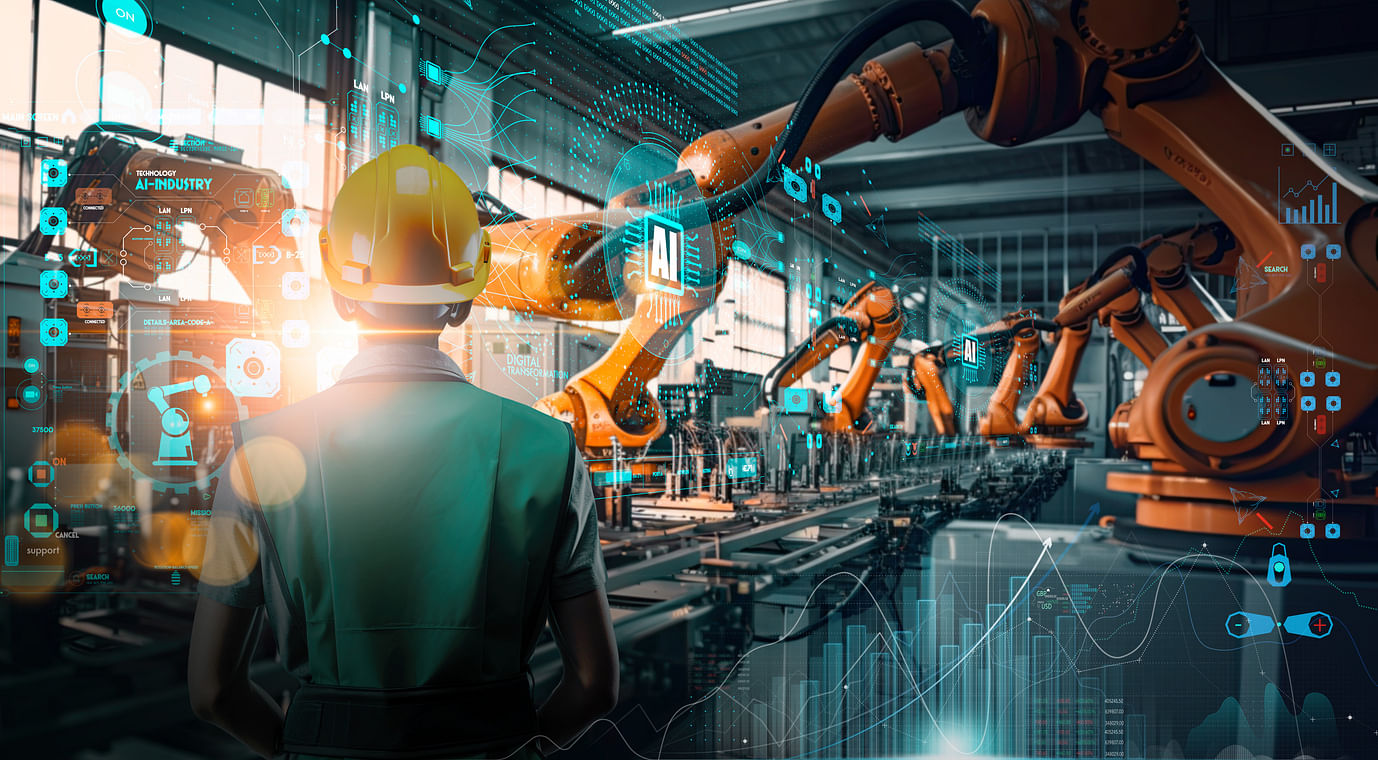
Image showing use of robotics in manufacturing. For representational purposes.
Credit: iStock Photo
New Delhi: A significant percentage of Indian manufacturers are adopting niche technologies like Artificial Intelligence and robotics to boost sustainable business practices as well as revenues, according to a PwC report.
Covering six industries, PwC's report 'Decoding the Fifth Industrial Revolution: Marching towards a resilient, sustainable and human-centric future' found that 93 per cent of Indian manufacturers are embracing Industry 5.0 to drive both sustainable practices and boost revenues.
PwC India's research was conducted between May and July 2024 and covered 180 manufacturing senior executives from the automotive, cement, chemicals, industrial goods, metals and textiles and clothing industries.
As per the research, more than 50 per cent of Indian manufacturers are prioritising investments this year in sustainable practices. These investments are aimed at leveraging digital technologies to adopt renewable energy sources and enhance energy efficiency, among others.
Additionally, 52 per cent of top executives at leading manufacturing companies are allocating investments this year towards building a culture of lifelong learning.
Sudipta Ghosh, Partner and Industrial Products Leader at PwC India, said Industry 5.0 represents a defining moment for the manufacturing sector - one that creates a symbiotic relationship between humans and advanced technologies like Artificial Intelligence (AI), robotics and the Internet of Things (IoT).
"Companies that fast-track their adoption of these capabilities will establish a competitive edge in the coming years, as transformation is crucial for building a sustainable and resilient future with humans as an integral part of this transformative journey," Ghosh said.
The report further said that some sectors have been more proactive with their investments than others. In the cement and industrial goods sectors, for instance, 95 per cent of manufacturers are prioritising investments in real-time inventory tracking, this year and the next.
The study also revealed that most executives agree that their readiness pertaining to Industry 5.0 capabilities relevant for their customers, workforce, supply chains, business models and ESG commitments would help enhance their revenues by 6.42 per cent on average over the next 1-2 years.
Also, executives from the chemicals, cement, and textiles and clothing sectors believe that their industries would see the most significant gains from the adoption of Industry 5.0, with potential revenue expansion exceeding 7 per cent.
It further said most automotive and metals executives highlight that their customers are willing to pay a premium for innovative products and services. In the textile and clothing sectors, executives note consumer readiness to pay a premium for sustainable products.
More than 95 per cent of respondents in the cement and industrial goods sectors are prioritising investments in real-time inventory tracking to optimise inventory levels, reduce stockouts, and minimise excess inventory this year and next, the report said.